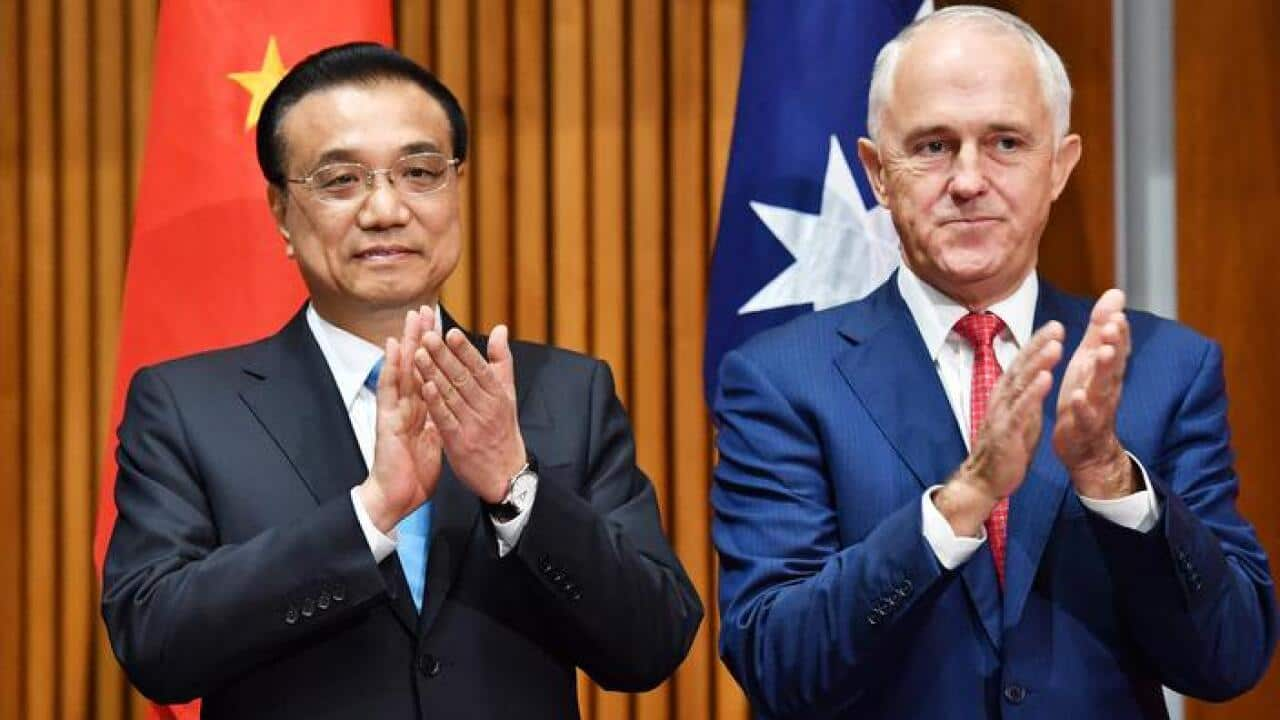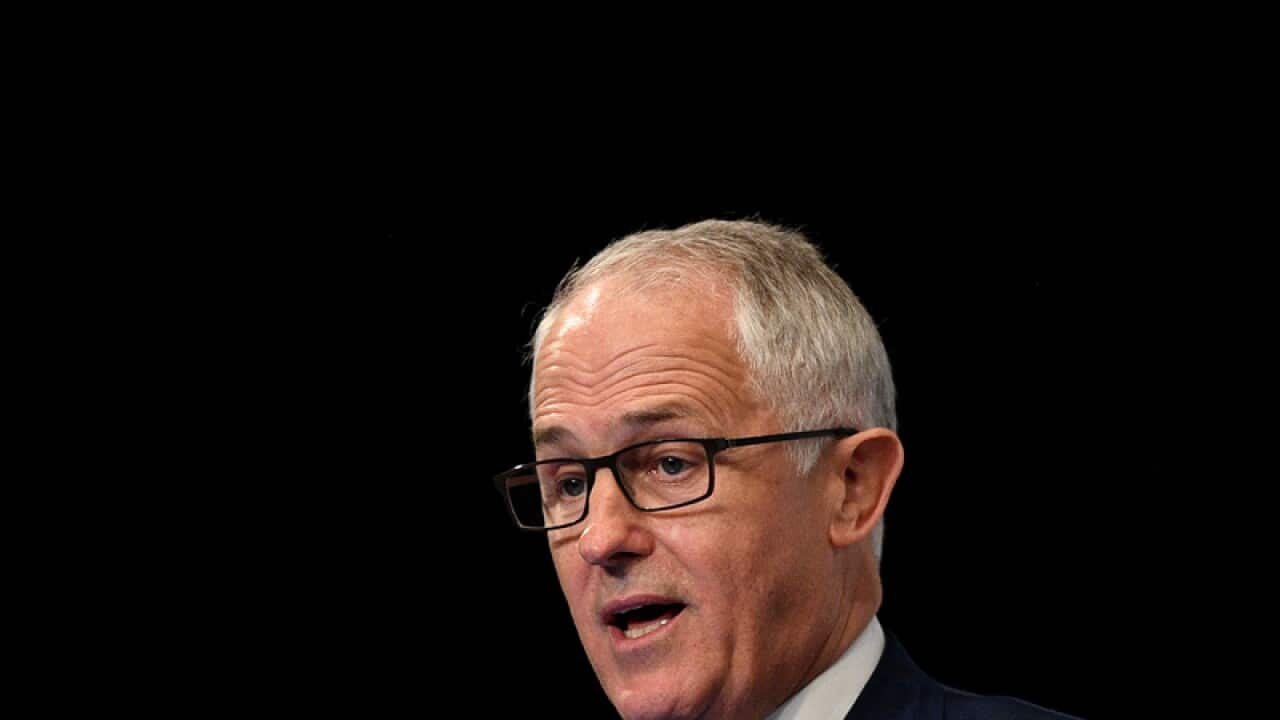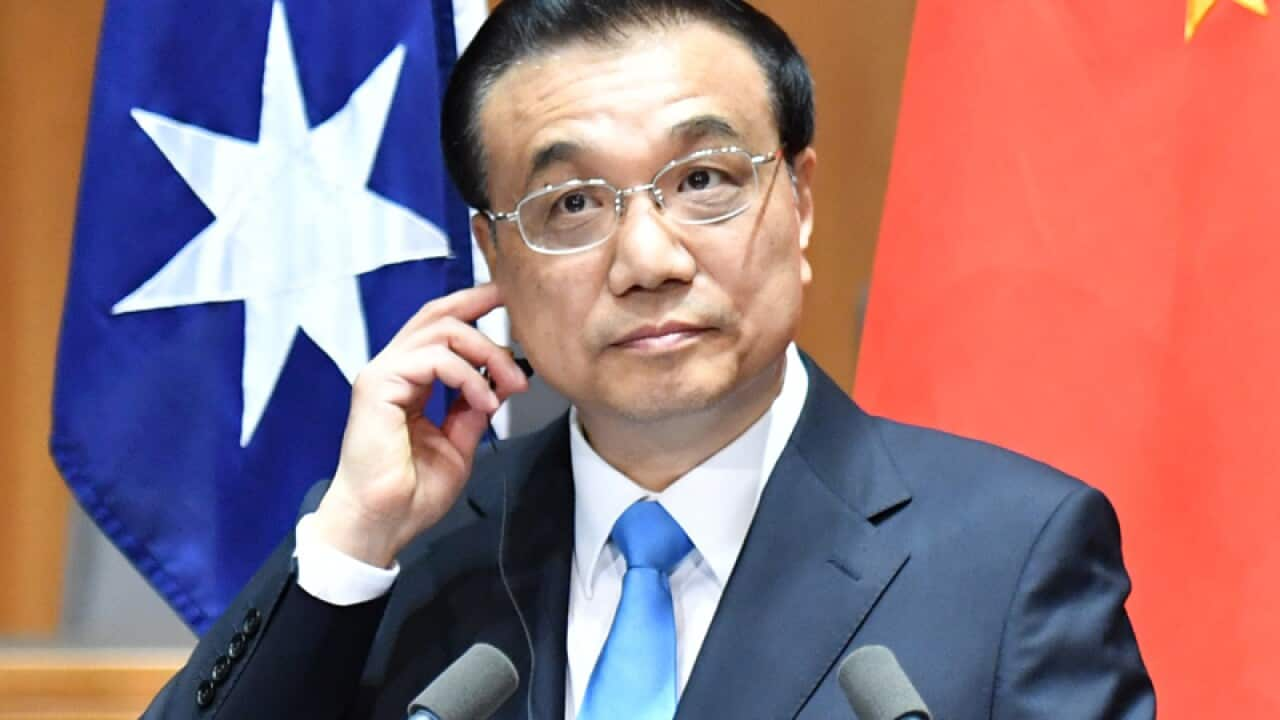The government has shelved a controversial move to ratify an extradition treaty with China, as parliamentarians from both the opposition and the government's own ranks expressed concern over the ethics of the deal.
Foreign Minister Julie Bishop announced the government would withdraw its ratification bill from the Senate on Tuesday morning.
"The Australian Government decided not to proceed with the ratification of the extradition treaty with China at this time," she said.
Malcolm Turnbull decided to pull the bill after receiving a phone call from Opposition Leader Bill Shorten, who informed the prime minister Labor's shadow cabinet had decided not to support the bill in a meeting on Monday evening.
Ms Bishop said the government's conversations with Labor had been "constructive", but said it remained the government's policy to implement the deal eventually.
She said she would now hold further talks with China's ambassador to Australia, as well as continuing meetings with the federal opposition.
"China has asked us to uphold our end of the deal," she said.
The ratification of the treaty would allow China to make official requests for alleged criminals residing in Australia to be extradited for trial in Chinese court, and vice versa.
Politicians from Labor, the crossbench and within the Coalition expressed concern over China's human rights record and judicial processes.
Tasmanian Liberal senator Eric Abetz was among a group of Coalition backbenchers who met with Ms Bishop on Monday evening to discuss their concerns.
"In China, the life of a defence lawyer is pretty poor, because I think in about 99.9 per cent of cases people are actually convicted," Mr Abetz said.
"I don't think that's because of the strength and expertise of the prosecutors, I think it's more that the cases and the judicial system may be stacked in a particular direction."
"There are fundamental human rights issues here...and I expressed quite a few of those to the foreign minister, and we had a good discussion," he said.
The government had offered assurances that there were safeguards in the treaty that would prevent human rights abuses. Ministers would have powers to prevent extraditions where they had concerns about the treatment the accused might receive in China.
"I have faith in our legal and political system to ensure that those safeguards would work," Ms Bishop said.
"And likewise, it's in Australia's interest to be able to extradite back to Austrlaia any Chinese national who may have committed a crime here and returned to China."
But Greens senator Nick McKim said his party was not convinced by those safeguards, describing the Chinese government as a "junta" and its judicial system as a "convictions factory".
The Turnbull Government's move to ratify the treaty came just a day after Chinese Premier Li Keqiang concluded a four-day visit to Australia.
The agreement has been on hold since it was signed by then-prime minister John Howard in 2007.
Ms Bishop says the treaty has been supported by every subsequent government since then.
But on Tuesday, Labor confirmed it now opposed the treaty. Shadow Attorney-General Mark Dreyfus said the opposition was calling for a "full review of the entire extradition system," including deals with other countries.
The treaty has also drawn opposition from the legal community, including the Law Council of Australia. Former prime Minister Tony Abbott on Tuesday said he would be cautious about ratifying this treaty now.
Former prime Minister Tony Abbott on Tuesday said he would be cautious about ratifying this treaty now.

China's Li Keqiang during a five day visit to Australia. last week. Source: AAP
"In my judgment, China's legal system has to evolve further before the Australian government and people could be confident that those before it would receive justice according to law," he told The Australian on Tuesday.
Malcolm Turnbull on Monday described the treaty as an important part of Australia's co-operation with China on law enforcement.
Former Liberal senator Cory Bernardi, now of the Australian Conservatives party, had introduced a motion to disallow the treaty's ratification.
"[It] doesn't strike me as an open and transparent legal system," he told ABC radio.
If ratified, Australia would be the third Western country to enter into an extradition agreement with China, joining Spain and France.
Australia would be the first of the so-called Five Eyes intelligence alliance with the US, UK, Canada and New Zealand to do so.
The move comes as the Chinese government continues its anti-corruption campaign and its so-called "fox-hunt" operation of returning corruption suspects overseas.
The Chinese Public Security Ministry says more than 850 fugitives were returned to China last year, mostly from Southeast Asian countries.
The Chinese government has previously released lists of fugitives they believe to be hiding in Australia, the US, New Zealand and Canada.
Andrew Byrnes, professor of International Law at the University of New South Wales, told SBS earlier in March many people in the legal community were concerned about the treaty.
"The Chinese legal system in many respects falls a long way short of the accepted international fair trial standards," Professor Byrnes said.
"Normally when we deal with those sorts of situations we don't enter in to extradition treaties with countries where we have real concerns."
- with AAP






